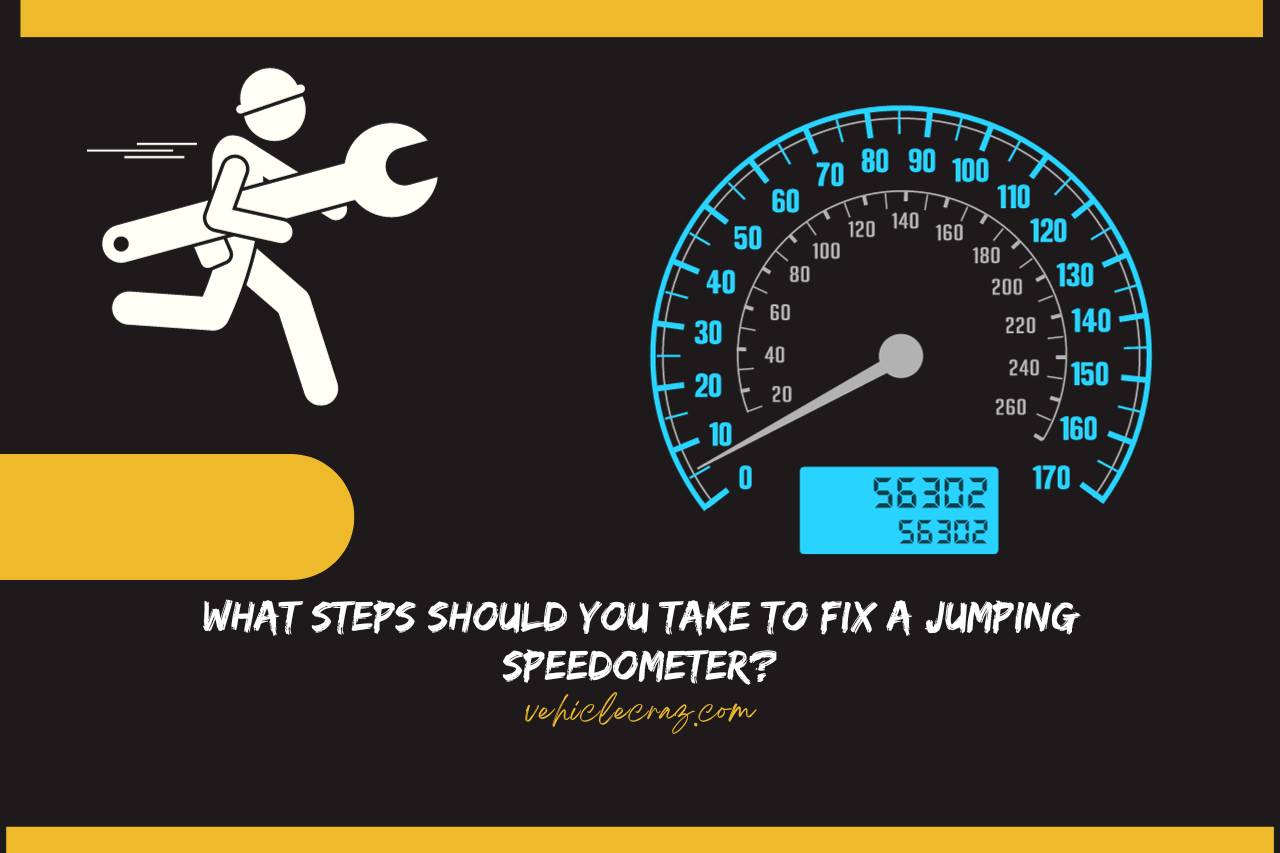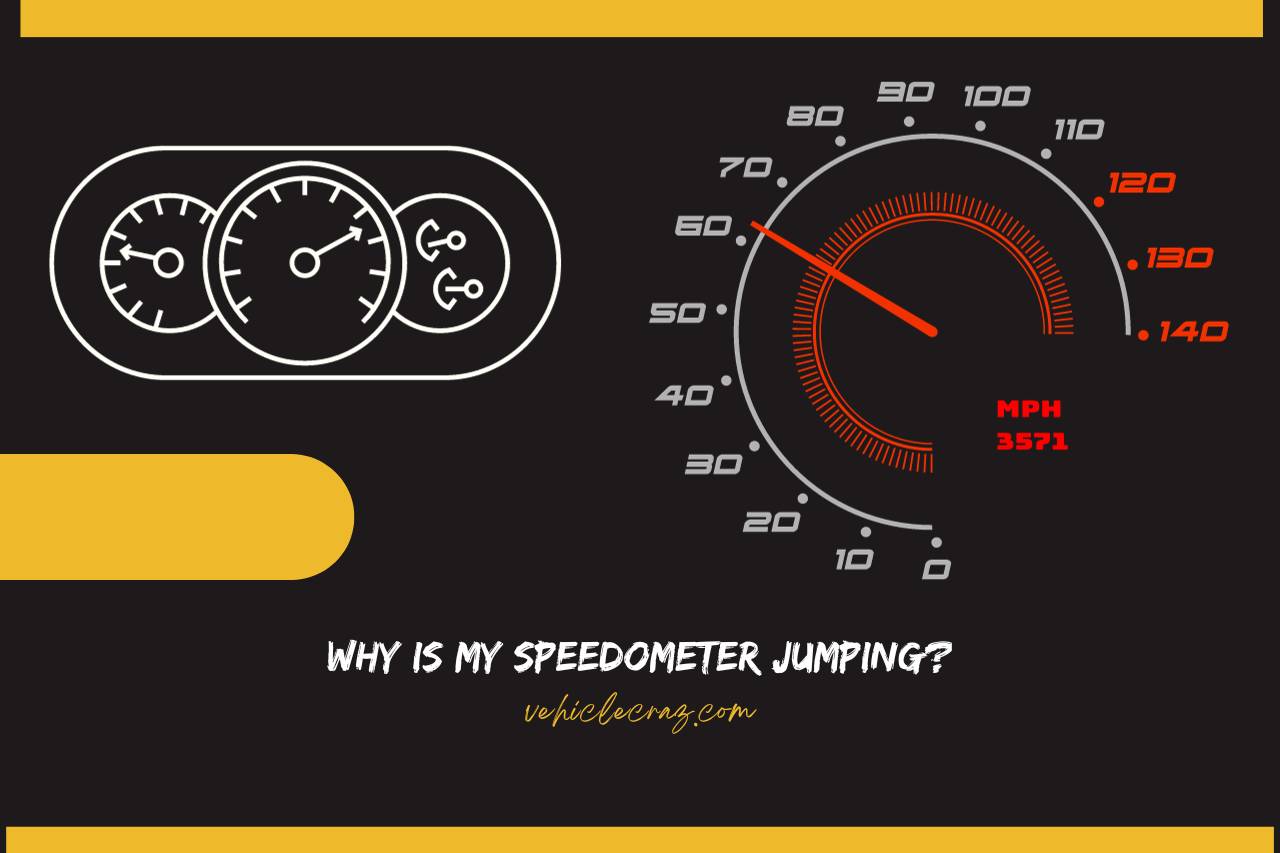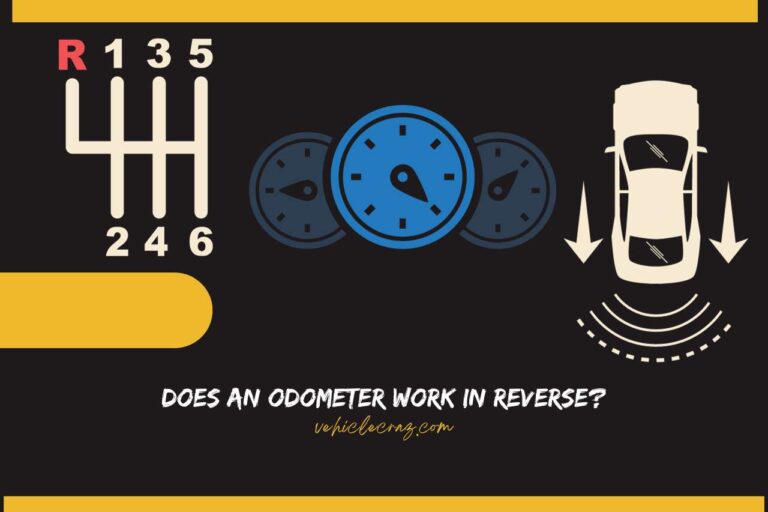Why is My Speedometer Jumping? Solving the Mystery!
Do you see there is an issue with the speedometer and thinking to yourself ‘Why is my speedometer jumping? This article aims to demystify the causes behind the speedometer fluctuations and provide you with practical steps for troubleshooting and fixing this particularly common automotive problem. Let’s get started.
Why is My Speedometer Jumping?
When your speedometer is jumping, it often indicates an underlying issue within your vehicle’s speed-sensing system.
A jumping speedometer, characterized by the needle bouncing or fluctuating erratically, usually points to a problem that requires attention.
Understanding what this behavior signifies is the key to maintaining your vehicle’s health and safety.
One of the primary causes of a jumping speedometer is the malfunctioning speed sensor.
Modern vehicles use electronic speed sensors to relay data to the speedometer. If the sensor is faulty or damaged, it can send you incorrect signals, causing the speedometer needle to jump.
Another potential cause is a problematic instrument cluster, where the speedometer itself is failing.
Electrical issues, such as loose wiring or failing electrical ground connection, can also lead you to erratic speedometer behavior.
These problems disrupt the flow of accurate electrical signals to the speedometer.
Additionally, in older vehicles with mechanical speedometers, the worn or misaligned cable can cause similar issues.
A jumping speedometer can also be a symptom of more significant issues like transmission problems, especially if you are accompanied by other warning signs like transmission slipping or unusual noises.
A jumping speedometer is a clear sign that your vehicle may have issues ranging from simple electrical faults to more serious transmission problems, warranting thorough inspection and prompt repairs.
Common Causes of Speedometer Fluctuations
Faulty speed sensors, wiring issues, instrument cluster problems, and tire discrepancies are some common causes of a jumping speedometer.
Faulty Speed Sensor
Modern vehicles use electronic speed sensors to measure the vehicle speed. A malfunctioning sensor can send erratic signals to the speedometer, causing it to fluctuate.
Wiring Issues
Damaged or corroded wiring can disrupt the electrical connections essential for accurate speedometer readings. Loose connections or short circuits can lead to intermittent speedometer jumps.
Instrument Cluster Problems
The instrument cluster, which houses the speedometer, can malfunction due to internal faults, leading to erratic readings. This might be due to circuit board issues or failing components.
Transmission Problems
Issues within the transmission system can manifest as the speedometer fluctuations, especially in older vehicles, with the mechanical linkages between the transmission and speedometer.
Tire Size Discrepancies
Incorrect tire sizes can also cause speedometer inaccuracies. If tires are not the standard size recommended by the manufacturer, the speedometer may not read correctly.


How to Fix a Jumping Speedometer?
To fix a jumping speedometer, a systematic approach is needed to identify and resolve the underlying issue. Addressing a fluctuating speedometer involves several key steps, ensuring accurate and reliable vehicle speed readings. Here is how to fix a jumping speedometer.
Diagnose the Problem
Begin with a thorough diagnosis. Use the diagnostic tool to check for any error codes in the vehicle’s computer system, which can indicate specific issues with the speed sensors or electrical system.
Inspect the speed Sensor
Check your vehicle’s speed sensor. Located on the transmission, the speed sensor can accumulate dirt or suffer from wear and tear. Cleaning or replacing a faulty speed sensor can often resolve the speedometer jumping issues.
Examine Wiring and Electrical Connections
Inspect the wiring that connects the speed sensor to the speedometer. Look for signs of damage, corrosion, or loose connections and repair or replace any faulty wiring.
Check the Instrument Cluster
If the problem persists, the issue might be within the instrument cluster itself. This may require professional assessment and repair, as the cluster contains intricate electronic components.
Verify Tire and Wheel Specifications
Ensure that tires and wheels match the vehicle’s specifications, as discrepancies here can affect the speedometer readings.
Seek Professional Help
If these steps don’t resolve your issue, it’s advisable for you to seek help from a professional mechanic. They can provide you with a more in-depth analysis and repair, especially for complex electrical or mechanical problems.
You May Also Like
- Does Speedometer Measure Average Speed? Exploring Speedometer!
- Can you Add a Digital Speedometer to a Car? (Step-by-Step)
- How to Remove Scratches from Speedometer Lens? Practical How-To!
- Which Fuse Controls the Speedometer? Start with the Fuse Box!
- How to Calibrate a Speedometer? From Novice to Pro!
- How to Tell If My Car Speedometer is Accurate? Tips to Test!
- Speedometer Not Working – Troubleshooting Your Car!
- Does ABS Sensor Affect Speedometer? Exploring the Connection!
- Does Tire Size Affect Speedometer? Expert Insights!


I’m Alex, a seasoned mechanical teacher with over 20 years of hands-on experience in Australia. My passion for all things automotive has driven me to establish this blog, aiming to share my wealth of knowledge and expertise with fellow enthusiasts, DIYers, and anyone keen on understanding the mechanics behind the machines we rely on daily.




![Can you Add a Digital Speedometer to a Car? [New/Older Vehicles]](https://vehiclecraz.com/wp-content/uploads/2023/11/ElecdiaryPresspallettevehiclecraz-49-768x512.jpg)


